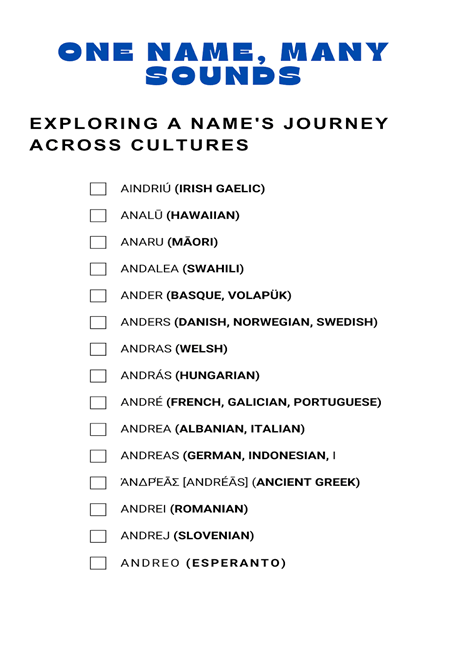Almost every person in the world has lifted his head at night and seen thousands of stars. We glimpse the random scattering of the light and stars shaping things. Of course, we don’t see the same sky. It is different depending on where you are, what time it is, what season it is.
Now, the same goes for names. When we are living in different cultures that have different writing, pronunciation, and sounds, we find it hard to adjust to the other mindset about names. So we try to change that name into our culture and that’s when variations of the same name occur.
According to Hungary, you have to choose the name of your baby on the list they provide. If your name is not on the list, parents need to apply for approval. From this, you can understand how important it is for people to choose the name from their mindset.
So, the question arises here, why are there so many variations of the same name? In this article, we will talk about a few important reasons that affect the naming of the society.
Why So Many Variations of the Same Names?
1. Spelling Variations:
Do you ever wonder why some name sounds are the same but spelled differently? It is not the cause of any accident, it is the result of language evolution from ancient times to the 20th century. Let’s take the example of Geoff and Jeff; their spellings are surely different but sound the same. Its spelling is based on historical language or regional way of speaking. These spelling deviations create variations in names and reflect the diversity across and within the culture.
2. Nicknames
People often create nicknames without thinking that it’s an unrelated term; so it become a nickname to name. But these nicknames become a family ritual and keep naming in the future kids. For example, William to Bill or Catheline to Canny. These informal nicknames serve as unique identifiers in personal relationships. The habit of creating nicknames of people led to the variation of the same name.
3. Abbreviations
Abbreviating names is an old tradition to give them a trendiness makeover. People do it when they find another person of the same name so they can avoid obscurity. This abbreviation creates simplicity and nicety to the name and also shortens the word. For example, the Guadalupe name converts into “GPE”. These abbreviations in the name go from generation to generation and create variations in the same.
4. Cognates or Translations:
You must be thinking about how names translate to other languages if they are “names”. but, they do because not all countries use the same alphabet as others. Cognates, or names with equivalent meanings in different languages contribute to the global diversity of names. For example, Pierre translates into Peter or Andrew translates into Andrey. This difference in the human name interconnects the name in different cultural contexts.
The name “Elena” sounds different in Japanese and is written as “エレナ” (Erena)
5. Cultural Differences
Cultural difference is also an important reason for variations of the same and shaping diversity. It’s not just the name but also pronunciation, spelling and even writing style that can impact the phrase. Most cultures have their root names derived from religion, history, belief, or nature and all sound different worldwide. When they transform into a new country, you find their name different from the cultural forms of their place of residence.
6. Transliterations
Transliterations serve as a linguistic bridge that means allowing names to gracefully translate from one writing system to another. when converting names from logographic systems, like Chinese characters, to alphabetic scripts such as the Roman alphabet, transliterations maintain the phonetic essence of a name. This process reflects the delicate art of retaining sound while accommodating the distinct characteristics of varied writing systems. It also facilitates cross-cultural communication and understanding.

Conclusion
Variations in the name are the reason for the dynamic nature of human language, culture differences, nicknames, spelling differences, and so on. Names are an integral part of human personality and culture. Each country has its own set of beliefs about the names. When they have to name the child, they focus on choosing the best from their own set of writing systems, sound, and culture.
However, names are among the most personal things we own but are not items we chose ourselves, naming customs offers a rare view into many civilizations. Parents, ancestors, and cultural traditions are the ones entrusted with this job.
